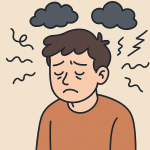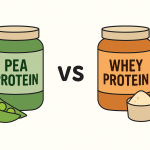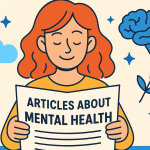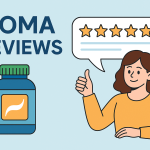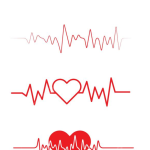Mental health is no longer a hidden topic—it’s at the forefront of conversations, healthcare, and everyday life. But have you come across the term 302 mental health and wondered what it really means? For many adults, seniors, and even parents navigating stress, anxiety, or depression, understanding terms like this can be confusing yet important.
In this guide, we will break down 302 mental health, uncover its impact, explore mental wellness strategies, and give you practical tips to improve your daily balance.
What Does 302 Mental Health Mean?
The term 302 mental health refers to an emergency code used in some healthcare and legal systems for involuntary psychiatric evaluation and hospitalization. Under this code, if someone poses a threat to themselves or others due to a severe mental health crisis, medical intervention may be initiated without voluntary consent.
This doesn’t mean the system is punishing people—it means it’s protecting individuals from immediate harm and ensuring they get the urgent treatment they may desperately need.
Why it matters: It highlights how serious mental health conditions can become if left untreated.
Who it affects: Adults, seniors, and even teenagers may face 302 interventions if their crisis escalates.
The bigger picture: Beyond an emergency code, it underscores the importance of preventive mental health care, awareness, and support.
Current Trends in Mental Health Awareness
Shift From Crisis Care to Preventive Wellness
Recent studies show nearly 1 in 5 adults in the U.S. live with a mental illness, and awareness campaigns are pushing society to focus on support before emergencies like 302 commitments occur.
Rise of Teletherapy and Digital Wellness
With the rise of platforms like Talkspace and BetterHelp, online counseling is becoming mainstream. At-home therapy access helps people avoid crises that may otherwise require emergency intervention.
Fitness and Nutrition Connection
Research highlights that **holistic health—combining mental, physical, and emotional care—**reduces risks for psychiatric hospitalization. Exercise, sleep hygiene, and balanced diets are being widely promoted alongside therapy.
Workplace Mental Health Programs
Employers are now offering employee wellness plans, meditation sessions, and flexible schedules to combat burnout—recognizing the link between stress and declining productivity.
Signs That May Lead to a 302 Commitment
Understanding red flags can prevent crises. Here are some warning signs of a severe mental health episode:
Intense feelings of hopelessness or worthlessness
Expressions of suicidal thoughts or self-harm tendencies
Sudden drastic mood swings and aggression
Withdrawal from family, friends, or usual routines
Dangerous or reckless behaviors without awareness of consequences
If these symptoms escalate, loved ones or professionals may petition for an emergency 302 mental health evaluation.
Practical Tips to Protect Your Mental Health
Preventive habits can greatly reduce the odds of reaching a mental crisis point.
1. Prioritize Self-Care Every Day
Get 7–8 hours of quality sleep.
Take a 20-minute walk daily to boost brain chemistry.
Practice mindfulness meditation or deep breathing.
2. Build a Support System
Stay connected with family and friends.
Join a support group for stress, parenting, or senior challenges.
Share your feelings instead of bottling them up.
3. Nourish Your Body for Mental Clarity
Nutrition plays a major role in mental health:
Omega-3 fatty acids from fish strengthen brain function.
Whole grains and leafy greens stabilize energy and mood.
Limit processed sugar that spikes anxiety and irritability.
4. Professional Guidance Matters
If stress, anxiety, or depression interferes with daily life, don’t wait for it to escalate. Therapy, counseling, and psychiatric consultations provide long-term stability before crisis intervention becomes necessary.
5. Limit Burnout Triggers
Plan daily “tech-free” time to avoid digital fatigue.
Learn to say no to unnecessary stressors.
Schedule consistent breaks from work.
How Fitness and Mental Health Connect
A new trend in wellness emphasizes exercise not just for physical benefit but also psychological relief.
Aerobic exercise (jogging, cycling, dancing) releases endorphins that fight depression.
Yoga and pilates calm anxious thoughts and help regulate breathing.
Strength training boosts self-esteem, motivation, and focus.
Studies suggest just 30 minutes of movement, 3–4 times weekly, can reduce symptoms of major depression as effectively as some medications.
Seniors and 302 Mental Health Concerns
For seniors, 302 mental health situations often arise from untreated conditions such as:
Dementia-related confusion and aggression
Severe loneliness and isolation
Medication interactions creating mood disturbances
Preventive measures—like regular check-ups, active caregiving, and mental stimulation—help reduce risks for elder psychiatric hospitalizations.
Mental Wellness for Parents
Parenting comes with unique stressors, and ignoring them may spiral into severe episodes:
Sleep deprivation increases anxiety.
Financial pressure adds emotional strain.
Balancing work and childcare often leads to burnout.
Parents can safeguard their well-being through co-parenting balance, family counseling, or practicing stress-relief hobbies like journaling, reading, or fitness classes.
Preventing a Mental Health Crisis
Here are actionable strategies to avoid situations where 302 mental health emergencies become necessary:
Early recognition: Take small signs seriously—sadness, irritability, or sudden withdrawal.
Routine check-ins: Mental health check-ups should be as common as physical health screenings.
Crisis hotlines: Use available resources like national suicide prevention hotlines before situations escalate.
Education: Encourage schools, workplaces, and healthcare providers to create awareness programs.
FAQs on 302 Mental Health
1. What does 302 mean in mental health?
It refers to an emergency legal code that allows involuntary psychiatric evaluation or hospitalization when a person is a danger to themselves or others.
2. Can a family member request a 302 evaluation?
Yes. In many regions, close family members or professionals can petition for a 302 if someone shows signs of severe mental crisis.
3. Does a 302 stay on your record?
Depending on local laws, it may be recorded in hospital and legal records, but it does not carry criminal charges—it is a medical intervention.
4. Can lifestyle changes prevent 302 commitments?
Yes. Preventive measures like therapy, support systems, fitness, and nutrition help reduce the risk of emergencies reaching this stage.
5. Are 302 commitments common?
They are less common than voluntary treatment but remain necessary in high-risk or urgent situations where immediate action is needed.
Final Thoughts
Understanding 302 mental health is more than knowing a legal term—it’s about recognizing the importance of preventing crises before they escalate. By practicing self-care, strengthening support systems, focusing on fitness and nutrition, and seeking early intervention, we can reduce the need for emergency psychiatric procedures.
If you or someone you know is struggling, take the step today—reach out to professionals, join a support network, or simply start a conversation about mental well-being.
Your mental health matters—don’t wait for a crisis. Start building balance today.

